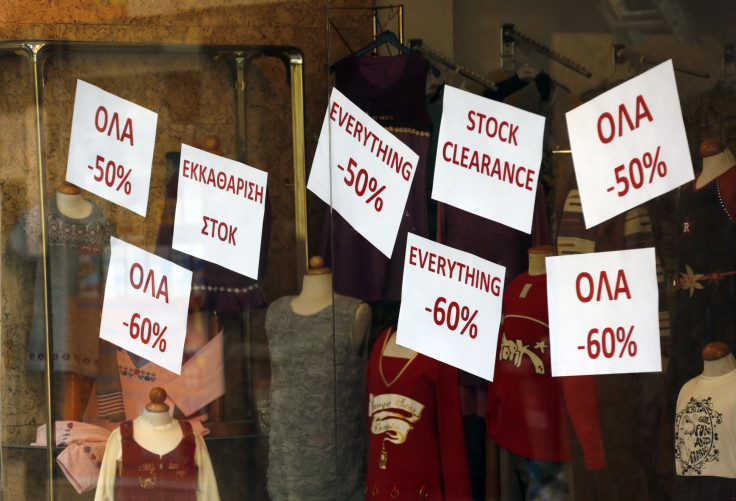With A Tanked Banking Sector, What Will The New Cyprus Economy Look Like?

The future of Cyprus’ banking sector doesn’t look too bright after its near collapse and subsequent bailout, leaving open the question whether other sectors of the island nation’s economy will be able mitigate some of the economic fallout.
Just weeks ago, Cyprus was regarded as an international tax haven, drawing in billions in capital from Russian businesses, and now it faces a mass exodus of foreign account holders from its banks which are set to reopen Thursday.
For decades, the Cypriot economy has been heavily dependent on its financial services sector, which accounted for 9 percent of GDP, but it also provided collateral benefits for local businesses and services that catered to wealthy foreigners checking up on their bank accounts.
Services in general have been Cyprus’ economic mainstay, accounting for more than 80 percent of GDP -- with tourism being its other cash cow. Industry and agriculture make up the remainder with 16.7 percent and 2.4 percent, respectively.
As a small island nation, Cyprus’s industrial and agricultural sectors are limited by space and resources. Most of its commodities are produced from small-scale operations, unable to complete globally, though it does have a strong presence in European markets.
The country’s main products are pharmaceuticals, food, beverages, chemicals, mineral products, machinery and equipment, according to the website Cyprus Profile.
“Of these only pharmaceuticals and non-metallic minerals have experienced growth in recent years,” the site says.
The energy sector may be Cyprus’ most promising sector for growth with an estimated 40 trillion cubic feet in natural gas reserves, but at the moment it remains undeveloped, and full-scale production is not expected to commence until 2018 at the earliest.
In the meantime, Cyprus will have to face hard times.
It’s not clear yet how much the banking sector will contract and what else will contract with it, but many are projecting a grim economic forecast.
“Clearly, Cyprus will face a deep recession going forward,” said Athanasios Orphanides, the former governor of the Central Bank of Cyprus, in an interview with the Bloomberg news agency.
The $13 billion bailout issued by the so-called “troika” (the European Central Bank, European Commission and International Monetary Fund) will allow Cyprus to remain within the Eurozone, but it has left a sour taste for many Cypriots who blame the deal for what is perceived as a deliberate attack on its most lucrative economic sector.
Orphanides singled out the German government as the primary force in driving heavy-handed measures imposed as conditions of the bailout, specifically the 10 percent tax on all deposits over $130,000.
“Here we have an instance where, essentially, (German Chancellor Angela) Merkel’s government acted as the prosecutor, the judge and the executioner of the banking system in Cyprus because of unsubstantiated allegations of Russian money that shouldn’t be there,” Orphanides said, referring to allegations that Cypriot banks were used to launder money for corrupt Russian businesses.
“It is very sad that the other European governments did not actually account for the pain that these events have created in Cyprus,” he added.
© Copyright IBTimes 2024. All rights reserved.











